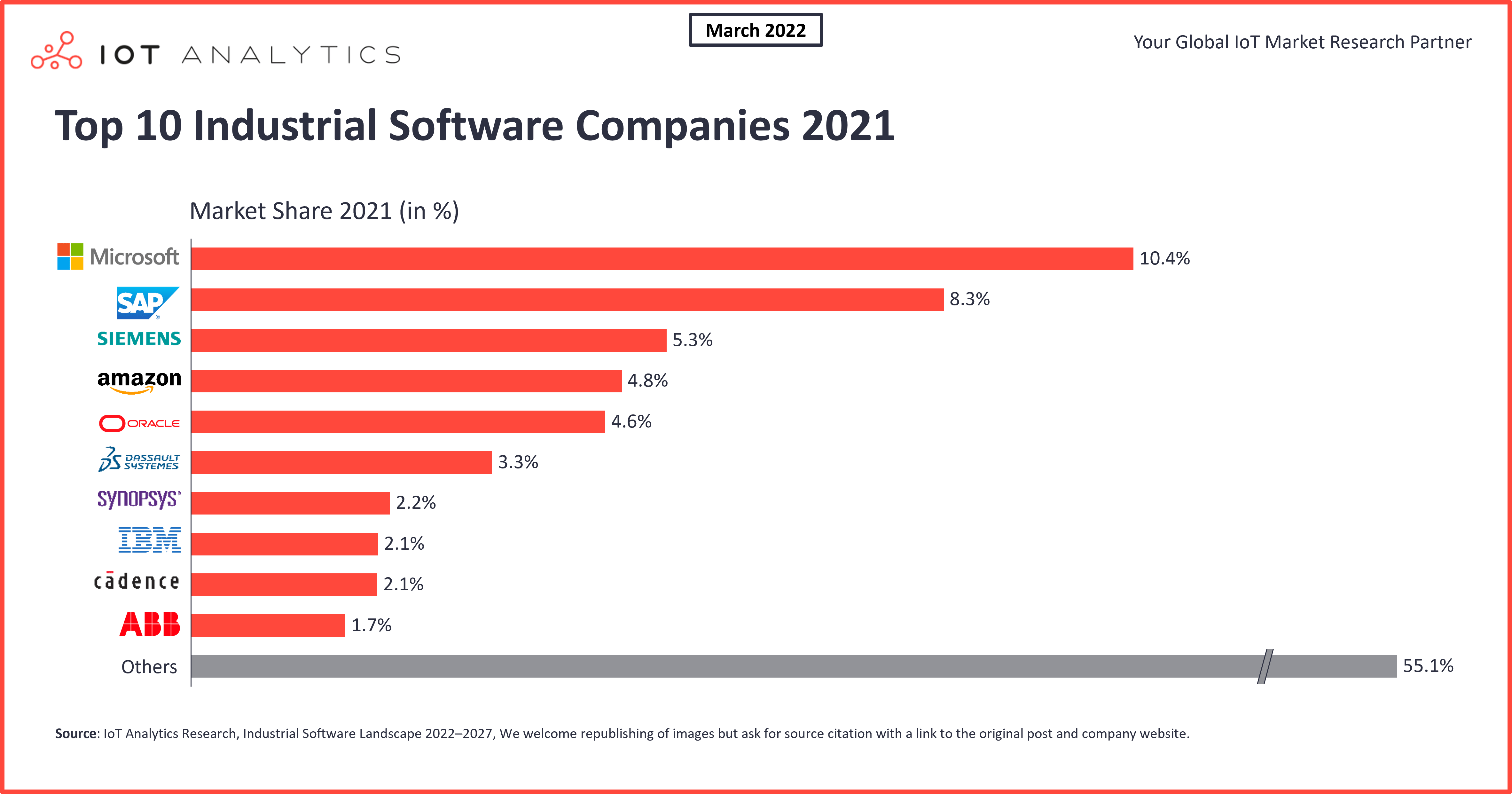So you’re curious about the software used in the IT industry, huh? Well, you’ve come to the right place! In this article, we’ll be exploring the various types of software that are commonly used in the ever-evolving world of Information Technology. From project management tools to programming languages, we’ll provide you with a comprehensive overview of the essential software that keeps the IT industry running smoothly. Let’s get started! In the ever-evolving world of IT, a multitude of software solutions are used to handle various tasks and processes. From operating systems to programming languages, database management systems to networking software, and collaboration tools to virtualization software, the industry relies on a wide range of software to achieve its goals. In this article, we will explore some of the most popular software used in the IT industry and delve into their functionalities and benefits.
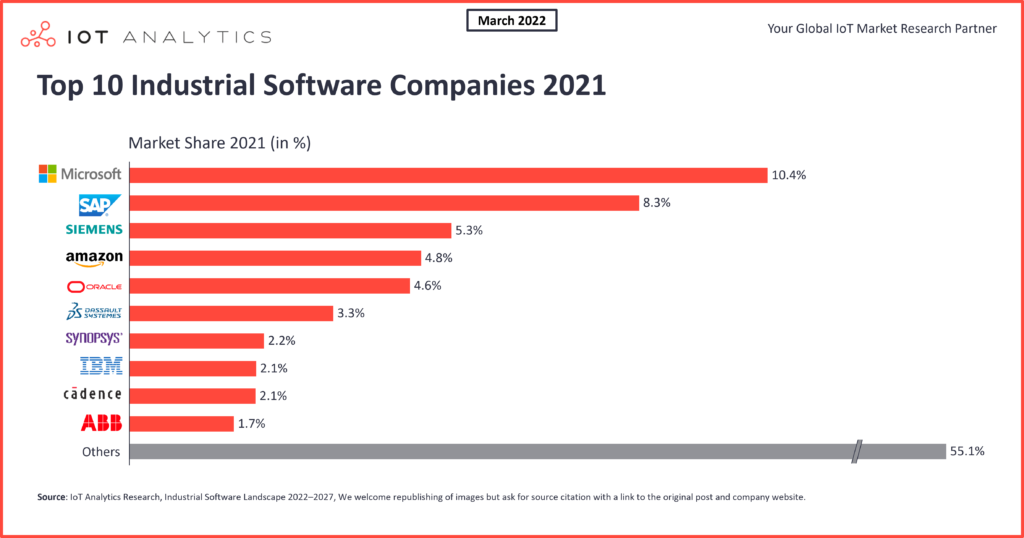
This image is property of iot-analytics.com.
Operating Systems
Windows
Windows, developed by Microsoft, is one of the most widely used operating systems in the IT industry. Known for its user-friendly interface, Windows offers a seamless experience for both personal and professional use. It provides a robust platform for running various software applications and offers extensive support for a wide range of hardware and devices. From Windows 10 to Windows Server, Microsoft’s operating systems cater to different needs, making it a popular choice among individuals and organizations alike.
MacOS
MacOS, developed by Apple Inc., is the operating system utilized by Mac computers. Known for its sleek design and intuitive user experience, MacOS is highly regarded by creatives and professionals in the IT industry. It offers seamless integration with other Apple products and boasts a secure and stable environment. MacOS is known for its reliability and performance, making it a preferred operating system for many developers and designers.
Linux
Linux, a free and open-source operating system, has gained immense popularity in the IT industry. Its flexibility, stability, and security have made Linux a favored choice among developers and system administrators. With various distributions available, such as Ubuntu, CentOS, and Debian, Linux caters to different needs and preferences. It offers a command-line interface, as well as graphical user interfaces, making it ideal for both experienced and novice users. Linux powers a significant portion of the internet and serves as the foundation for many server environments, making it a fundamental part of the IT ecosystem.
Programming Languages
Java
Java, a general-purpose programming language, has been a dominant force in the IT industry for decades. Known for its “write once, run anywhere” capability, Java allows developers to create applications that can run across different platforms and devices. It offers a robust set of libraries and frameworks, making it suitable for various purposes, including web development, mobile app development, and enterprise software development. Java’s popularity stems from its scalability, performance, and extensive community support.
Python
Python, a versatile and beginner-friendly programming language, has gained significant traction in recent years. Its simplicity and readability have made it popular among developers, particularly in areas such as data science, machine learning, and web development. Python’s extensive libraries and frameworks, such as NumPy, Pandas, and Django, provide developers with a wealth of tools to tackle complex tasks efficiently. With its emphasis on code readability and ease of use, Python has become a go-to language for many IT professionals.
C++
C++, a highly versatile programming language, is widely used in the IT industry for its performance and low-level capabilities. Known as an extension of the C programming language, C++ allows developers to develop efficient and powerful applications. It is commonly used in system programming, game development, embedded systems, and other performance-critical applications. With its ability to control hardware directly and optimize resource usage, C++ continues to be relevant in various domains within the IT industry.
JavaScript
JavaScript, primarily known as a scripting language for web development, has become a key component of the IT industry. Its ability to add interactivity and dynamic content to websites has made it an indispensable tool for front-end development. In recent years, with the rise of technologies like Node.js, JavaScript has expanded its reach to server-side programming, allowing developers to build full-stack applications using a single language. JavaScript’s vast ecosystem, including popular libraries and frameworks like React.js and Angular, has cemented its position as a go-to language for web development.
Database Management Systems
Oracle
Oracle, a leading provider of database management systems, offers a comprehensive suite of software solutions for managing and processing large volumes of data. Known for its reliability, scalability, and security, Oracle’s database management systems are utilized by organizations of all sizes, ranging from small businesses to large enterprises. Oracle provides robust tools for data storage, retrieval, and analysis, making it a popular choice for businesses that require high-performance databases.
MySQL
MySQL, an open-source relational database management system, is widely used in the IT industry due to its simplicity and speed. It can handle large amounts of data efficiently and is often favored for web applications and content management systems. MySQL’s ease of use, combined with its strong community support, has made it a popular choice among developers and small businesses looking to manage their data effectively.
Microsoft SQL Server
Microsoft SQL Server, developed by Microsoft, is a powerful database management system utilized by many enterprises. With its comprehensive set of features and strong integration capabilities with other Microsoft products, SQL Server offers a reliable and secure platform for storing, managing, and analyzing data. It supports transaction processing, business intelligence, and data warehousing, making it suitable for various business needs. Microsoft SQL Server’s scalability and ease of use contribute to its popularity in the IT industry.
Networking Software
Cisco
Cisco, a leading networking solutions provider, offers a wide range of software solutions to facilitate efficient network management and communication. From network routers to switches, Cisco’s networking software enables organizations to build and maintain robust and secure networks. With features like network monitoring, security management, and virtual private network (VPN) support, Cisco’s software helps businesses ensure the smooth operation of their networks and protect sensitive data.
Juniper
Juniper Networks provides networking software solutions designed to address the complex challenges faced by enterprises in today’s digital landscape. Juniper’s software offers advanced network security features, including intrusion prevention systems and distributed denial-of-service (DDoS) protection. Additionally, Juniper’s software-defined networking (SDN) solutions enable businesses to streamline network management, automate processes, and enhance network agility. Juniper’s networking software plays a crucial role in ensuring the stability and security of modern IT infrastructures.
Wireshark
Wireshark, an open-source network protocol analyzer, is widely used in the IT industry for network troubleshooting and analysis. Its ability to capture, analyze, and interpret network packets makes it a valuable tool for identifying and resolving network issues. Wireshark’s powerful features, such as packet filtering and deep inspection capabilities, allow IT professionals to monitor network traffic and gain insights into network behavior. With its user-friendly interface and extensive protocol support, Wireshark is highly regarded as a must-have tool for network administrators and security analysts.
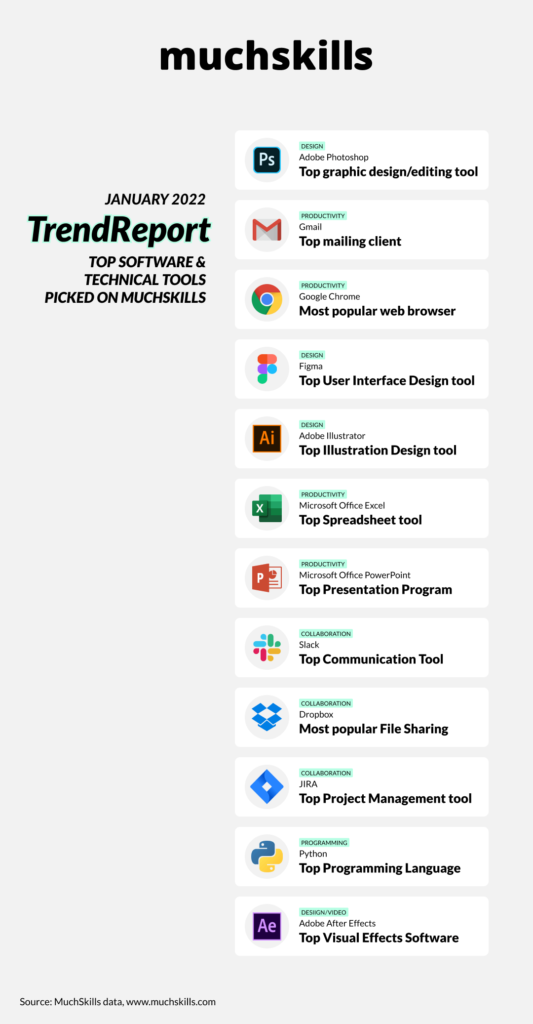
This image is property of global-uploads.webflow.com.
Web Development Frameworks
Ruby on Rails
Ruby on Rails, often referred to as Rails, is a popular web development framework known for its simplicity and productivity. Built on the Ruby programming language, Rails follows the principle of convention over configuration, making it easy for developers to build web applications quickly. Rails provides a robust set of libraries and tools, allowing developers to focus on application logic rather than system infrastructure. Its emphasis on clean code and rapid development has made Ruby on Rails a favorite choice for startups and developers seeking agility.
React.js
React.js, developed by Facebook, is a powerful JavaScript library used for building user interfaces. It follows a component-based architecture, enabling developers to create reusable UI components and efficiently manage the state of their applications. React.js excels in creating interactive and responsive user interfaces, making it a preferred choice for single-page applications and complex front-end development projects. Its virtual DOM and efficient rendering algorithms contribute to its performance and popularity in the IT industry.
Angular
Angular, developed and maintained by Google, is a comprehensive web development framework used for building large-scale applications. It provides a complete toolkit for developing dynamic web applications, including features like two-way data binding, dependency injection, and extensive component-based architecture. Angular’s powerful features, combined with its robust development ecosystem, make it a preferred choice for enterprise-level applications and complex web development projects. Angular’s ability to streamline development processes and ensure code maintainability has established it as a leading framework in the IT industry.
Collaboration and Project Management Tools
JIRA
JIRA, developed by Atlassian, is a widely used project management and issue tracking tool utilized by teams to plan, track, and manage their work. JIRA provides a customizable workflow, enabling teams to adapt the tool to their specific needs and processes. With features like task assignment, progress tracking, and real-time collaboration, JIRA helps teams stay organized and deliver projects efficiently. It also offers integrations with other popular software tools, making it a central hub for project management in the IT industry.
Trello
Trello, known for its intuitive and visual interface, is a flexible project management tool that utilizes boards, lists, and cards to organize tasks and workflows. It offers a simple yet powerful way for teams to track progress, assign tasks, and collaborate in real-time. Trello’s drag-and-drop functionality and user-friendly interface make it easy to adapt to various project management methodologies. Its broad range of integrations with other software tools further enhances its capability as a collaborative project management solution.
Slack
Slack, a popular team communication platform, plays a vital role in enhancing collaboration within the IT industry. With channels for different teams and projects, Slack enables seamless communication and information sharing across departments and organizations. It offers features such as instant messaging, file sharing, and integration with other software tools. Slack’s ability to reduce email overload and provide real-time communication has made it a go-to tool for team collaboration in the IT industry.
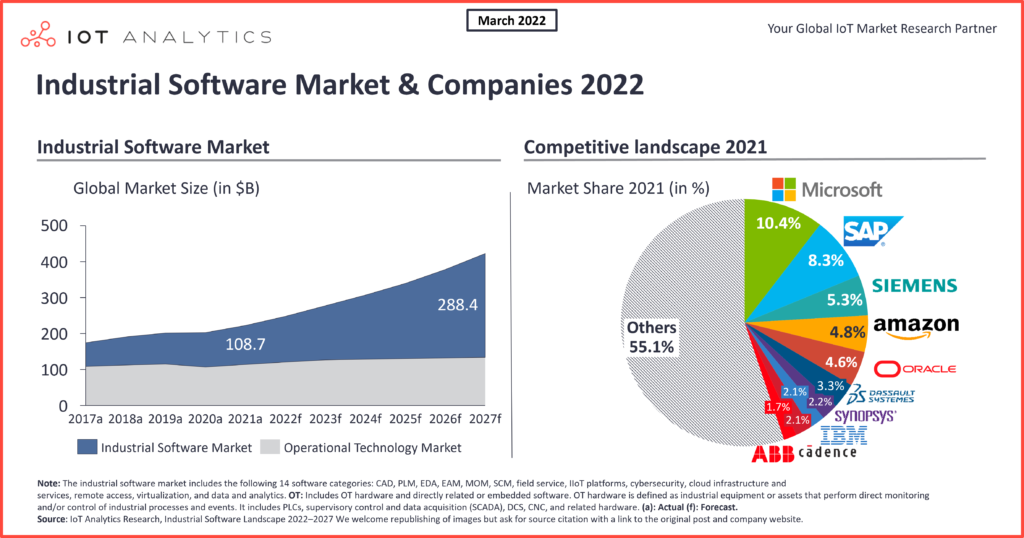
This image is property of iot-analytics.com.
Virtualization Software
VMware
VMware, a leader in desktop and server virtualization, provides software solutions that enable organizations to consolidate their IT infrastructure, reduce costs, and increase efficiency. VMware’s virtualization software allows multiple operating systems and applications to run on a single physical server, optimizing resource utilization. It offers features such as live migration, high availability, and disaster recovery capabilities. VMware’s virtualization solutions are widely used in data centers and cloud environments, contributing to the scalability and agility of IT infrastructures.
VirtualBox
VirtualBox, an open-source virtualization software, is a popular choice for developers and enthusiasts looking to create and manage virtual machines. With VirtualBox, users can run multiple guest operating systems on a single host machine, allowing for easy testing and development environments. VirtualBox supports a wide range of operating systems and offers features such as snapshotting, seamless mode, and shared folders. Its user-friendly interface and community support make VirtualBox an accessible tool for virtualization in the IT industry.
Hyper-V
Hyper-V, developed by Microsoft, is a hypervisor-based virtualization platform integrated within Windows Server operating systems. It allows organizations to create and manage virtual machines across their infrastructure, enabling efficient resource allocation and server consolidation. Hyper-V provides features such as live migration, failover clustering, and virtual machine replication, making it a robust virtualization solution for businesses of all sizes. Its tight integration with the Windows ecosystem and enterprise-level capabilities have solidified Hyper-V’s position as a leading virtualization software in the IT industry.
Security Software
Firewalls
Firewalls are a fundamental component of network security, serving as a barrier between internal networks and external threats. They monitor and control incoming and outgoing network traffic based on predefined security rules, helping protect systems and data from unauthorized access and potential cyber threats. Firewalls can be implemented in both hardware and software forms, providing an additional layer of defense for IT infrastructures.
Antivirus
Antivirus software plays a critical role in protecting systems from malware, viruses, and other malicious software. It scans files and applications for known threats, removes or quarantines infected files, and provides real-time protection against emerging threats. Antivirus software helps to prevent data breaches, system vulnerabilities, and unauthorized access, ensuring the security and integrity of IT environments.
Encryption Tools
Encryption tools are utilized to protect sensitive information by encoding data in a way that can only be decrypted with the correct encryption key. By employing encryption algorithms, IT professionals can safeguard data at rest, in transit, and in use. Encryption tools are crucial for securing communication channels, preventing data breaches, and complying with privacy regulations. They provide an additional layer of protection against unauthorized access and data theft.
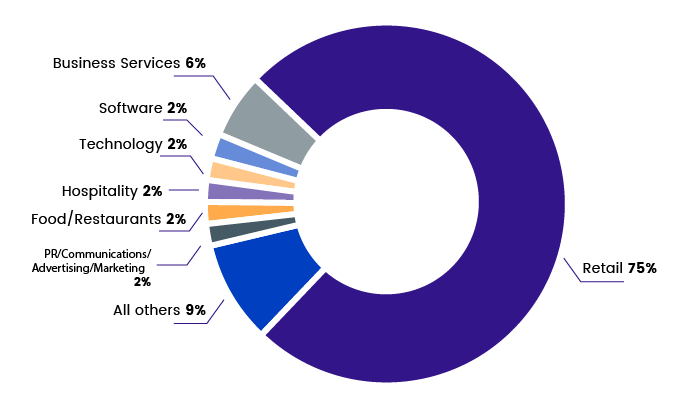
This image is property of rubygarage.s3.amazonaws.com.
Enterprise Resource Planning (ERP) Software
SAP
SAP, a leading provider of enterprise software, offers comprehensive ERP solutions designed to optimize business processes and support decision-making. SAP’s ERP software covers areas such as finance, human resources, supply chain management, and customer relationship management. It integrates various departments and functions within an organization, enabling efficient data management and streamlining operations. SAP’s robust functionality, scalability, and industry-specific solutions have made it a preferred choice for many enterprises in the IT industry.
Oracle ERP
Oracle ERP, a suite of integrated business applications, provides organizations with a comprehensive solution for managing critical business processes. From financials to supply chain management and human capital management, Oracle ERP offers modules tailored to different industry verticals. Oracle’s ERP software leverages advanced technologies like artificial intelligence and machine learning, allowing organizations to automate tasks, gain insights from data, and drive business growth. Its flexibility, scalability, and extensive industry-specific solutions contribute to its popularity in the IT industry.
Microsoft Dynamics
Microsoft Dynamics, a suite of enterprise resource planning and customer relationship management applications, provides organizations with a unified platform for managing their operations and customer interactions. Microsoft Dynamics offers modules for finance, sales, marketing, and customer service, allowing organizations to streamline processes and improve business productivity. With its seamless integration with other Microsoft products, such as Office 365 and Azure, Microsoft Dynamics offers a comprehensive solution for organizations looking to enhance their efficiency and customer satisfaction.
Cloud Computing Platforms
Amazon Web Services (AWS)
Amazon Web Services (AWS) is a leading cloud computing platform that provides a wide range of services for storing, managing, and processing data in the cloud. From virtual servers to storage, databases, and machine learning, AWS offers a comprehensive suite of services designed to meet the needs of businesses of all sizes. AWS provides the ability to scale resources on-demand, enabling organizations to quickly adapt to changing business requirements. Its global infrastructure, security features, and extensive service offerings have made AWS a dominant player in the cloud computing industry.
Microsoft Azure
Microsoft Azure, developed by Microsoft, is a cloud computing platform that offers a broad range of services for building, deploying, and managing applications and services through Microsoft-managed data centers. Azure provides flexible compute and storage options, as well as services for analytics, machine learning, and internet of things (IoT) applications. With its deep integration with other Microsoft products, organizations can seamlessly extend their on-premises infrastructure to the cloud and take advantage of a wide range of services. Microsoft Azure’s scalability, security, and hybrid cloud capabilities contribute to its popularity in the IT industry.
Google Cloud Platform
Google Cloud Platform (GCP) is a suite of cloud computing services offered by Google, providing organizations with infrastructure and platform services to build, test, and deploy applications. From virtual machines to storage, databases, and AI tools, Google Cloud Platform offers a comprehensive set of services to support various business requirements. It emphasizes scalability, cost efficiency, and performance, making it a preferred choice for organizations looking to leverage Google’s cutting-edge technologies. Google Cloud Platform’s integrated data analytics and machine learning capabilities further enhance its appeal in the IT industry.
In conclusion, the IT industry relies on a vast array of software solutions to fulfill its technological needs. From operating systems and programming languages to database management systems, networking software, collaboration tools, virtualization software, and more, the software discussed in this article plays a critical role in driving innovation, efficiency, and security within organizations. By harnessing the power of these software solutions, IT professionals can unlock new possibilities, enhance productivity, and deliver exceptional results in today’s technology-driven world.
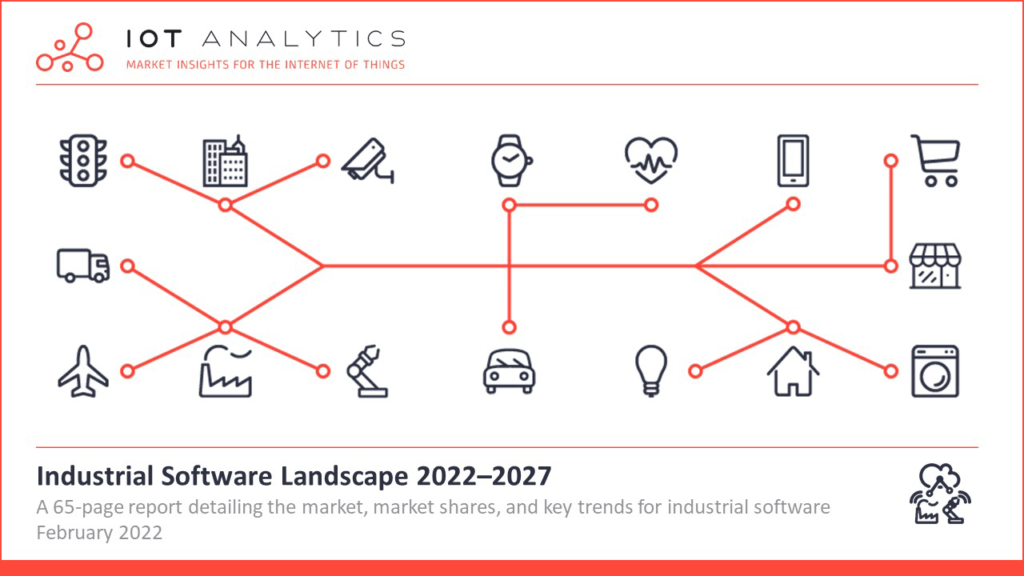
This image is property of iot-analytics.com.
